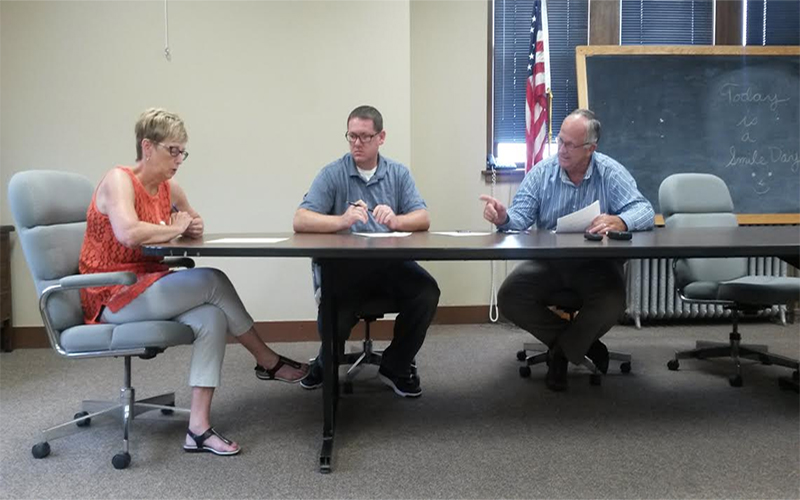OSKALOOSA — The future of the Country Life facility has been a topic of discussion for Mahaska County Board of Supervisors in recent months. With the facility closing its doors at the end of November, supervisors wrestled with the idea of tearing down the “dilapidated” structure or selling the facility as is.
Jon Nelson, of Central Reformed Church, approached the board in November regarding the possibility of transforming the facility into transitional housing for those in need.
“The Pastors Association met and were talking about the need in this community,” said Nelson. “People are always coming to us for food cards or help, so we began discussing different places in town where we could create some housing.”
Nelson and the church’s Director of Outreach Andy Baker took a trip to Country Life and felt “it would be a wonderful place for transitional housing or
a shelter.” The idea would bring different nonprofits, churches and other stakeholders together to create something that would greatly benefit those experiencing financial hardships.
“I was part of building a transitional housing ministry like this in Orange City where I was a couple of years ago, and it has worked out very effectively since its creation,” said Nelson during the meeting. “Orange City is a rather affluent small town, yet the abandoned hospital we used served around 22 women and children, so you could really think of what could happen in this community where you see a little bit more of a predominant need for something like this.”
After a meeting with community stakeholders, the organization decided to no longer “pursue the old Country Life site for transition housing,” according to Baker, who cited eroding infrastructure as the reason for discarding the idea.
Although area churches are no longer looking at creating this type of large-scale temporary housing, Baker says those in need will still find aid within the community.
“Beginning in 2016, the new Behavioral Health Region our county is a part of (South Central Behavioral Health Region) will have significant programs and funding available to help with housing. Most importantly, they will be in a position to not only assist in emergency housing situations but also over the long-term through a permanent sustainable housing program,” Baker said before adding: “This program will assist people over the long term with housing in a traditional apartment rather than in a shelter or specialized housing center. This will address many of the needs we have been seeing in terms of homelessness in the community.”
Even with the funding and program offered through the Behavioral Health Region, there will still be gaps in coverage, which will largely affect individuals who have not been diagnosed with a behavioral health issue or refuse to seek treatment.
Baker says that proves there is still a need for additional housing assistance, just on a smaller scale than the Country Life facility. “That is a 60-bed facility, and we are seeing the need perhaps being a four-unit type complex,” said Baker. “So, there is still significant work to be done in terms of homelessness and emergency housing in our county, but the efforts of the new South Central Behavioral Health District are going to be a huge step in the right direction.”
For more information the South Central Behavioral Health District’s efforts, contact Heather Gross, community services director for Mahaska County, at gross@mahaskacounty.org.
Story provided by Danielle Lunsford




